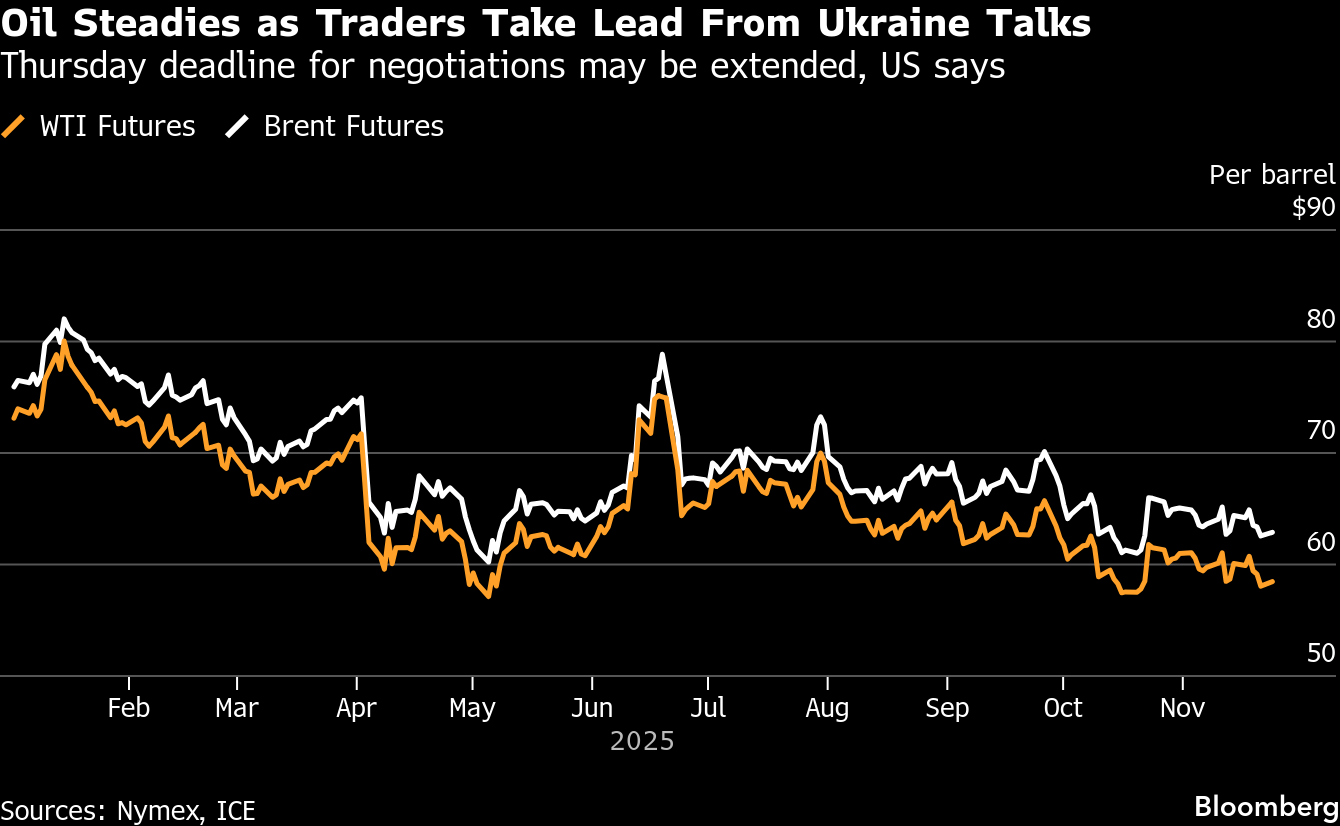Oil Rises as Prospects for Ukraine Peace Deal Dominate Market
(Bloomberg) -- Oil pushed higher as equities rose and traders weighed the prospect of a Ukraine-Russia peace deal that could deflate political risk from an already well-supplied market.
West Texas Intermediate was trading under $59, ticking up following its biggest weekly loss since early October.
While oil followed other risk assets higher, traders awaited further news after Ukraine and its European allies signaled that key sticking points remained in US-brokered peace talks to end Russia’s invasion, even as senior officials hailed progress in winning more favorable terms for Kyiv.
“Something good just may be happening,” President Donald Trump wrote in a Truth Social post about the talks.

Refined products like diesel and gasoline — which have risen in recent weeks — were down on Monday. The difference between the price of gasoline or diesel and crude oil, known as crack spreads, continued to decline. Some trend-following commodity trading advisers were selling positions in the products though most stood their ground, according to data from Bridgeton Research Group.
Crude has slumped this year, with futures on course for a fourth monthly loss in November, in what would be the longest losing run since 2023. The decline has been driven by expanded global output, including from OPEC+, with the International Energy Agency forecasting a record surplus for 2026. Traders are monitoring whether a deal on Ukraine will materialize, and if sanctions on Russia will be lifted — developments that could inject more supply.
“We should expect a nervous oil market ahead of Thanksgiving on Thursday,” said Arne Lohmann Rasmussen, chief analyst at A/S Global Risk Management. “Several factors point to a peace agreement or possibly a ceasefire moving closer over the weekend, which supports further price declines this week.”
Ukraine President Volodymyr Zelenskiy said Monday that talks had reached a “critical moment” as he indicated that discussions over territory and sovereignty would prove difficult.
©2025 Bloomberg L.P.





